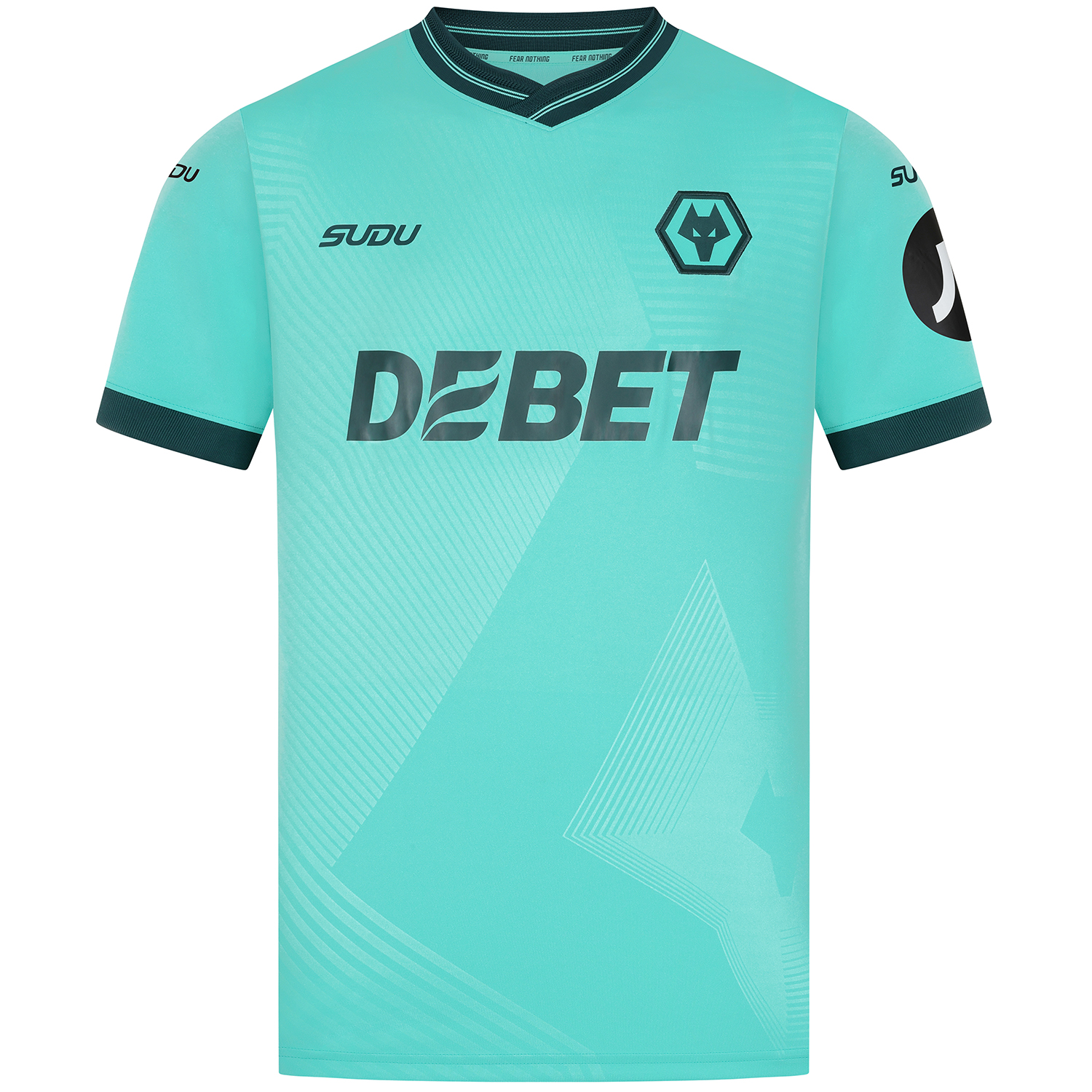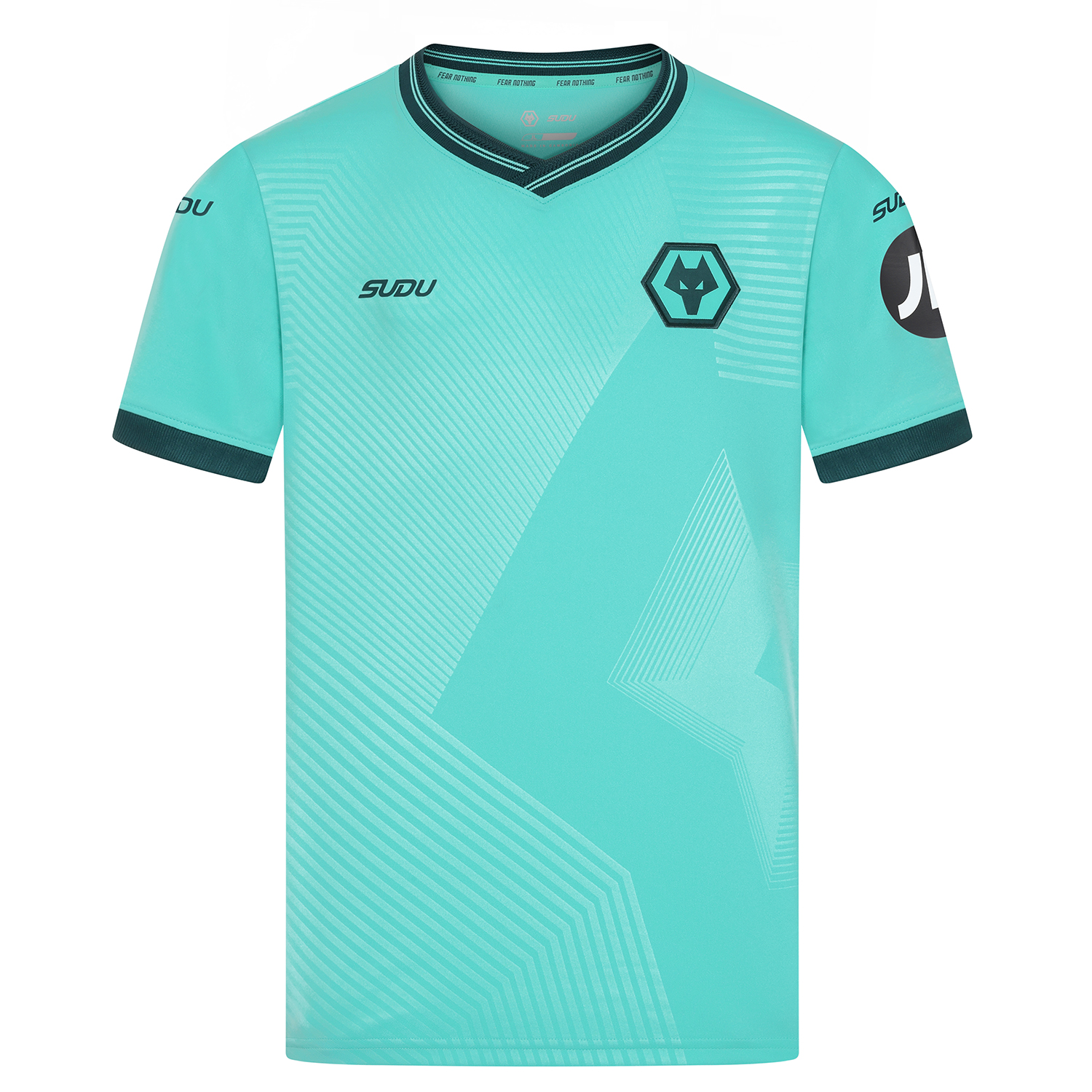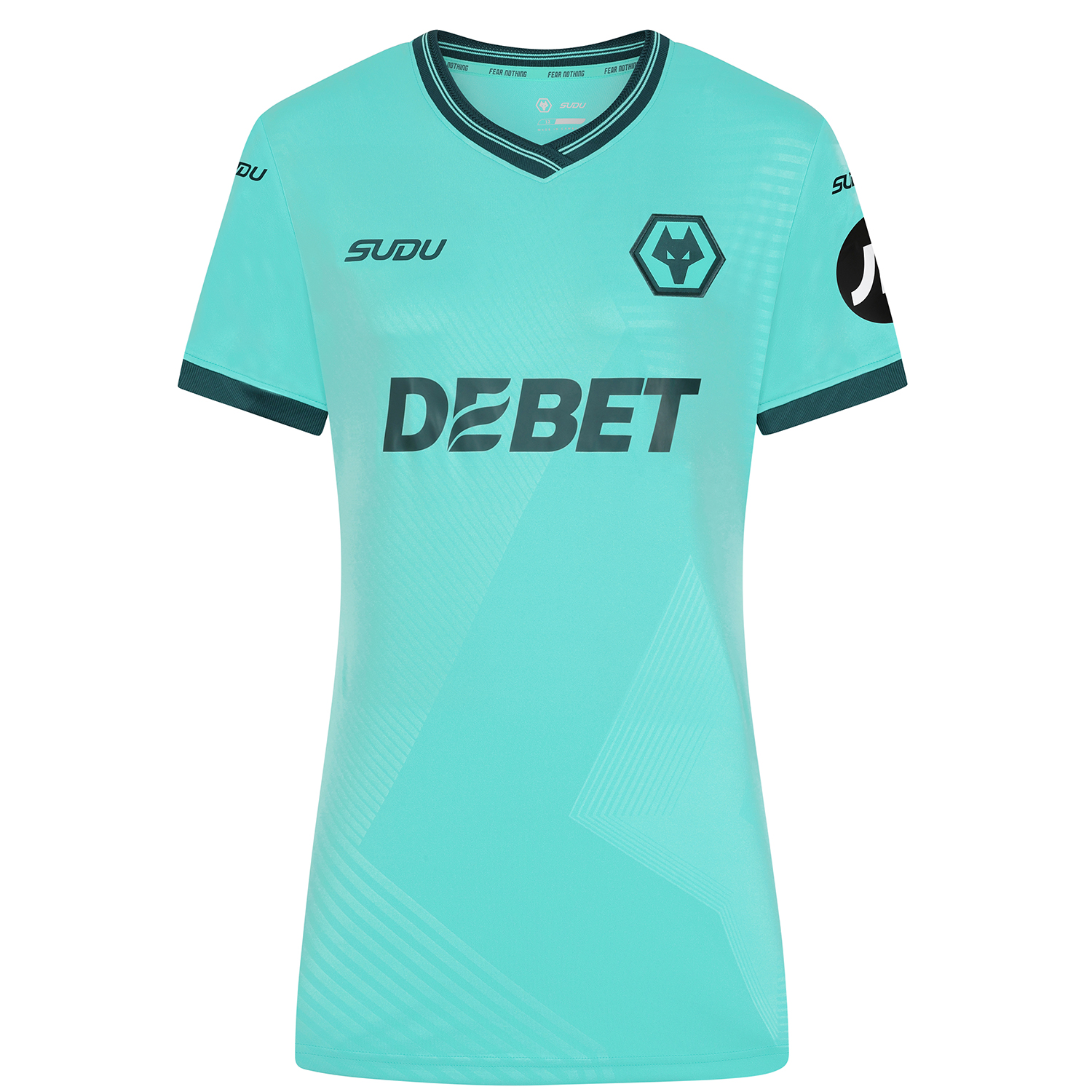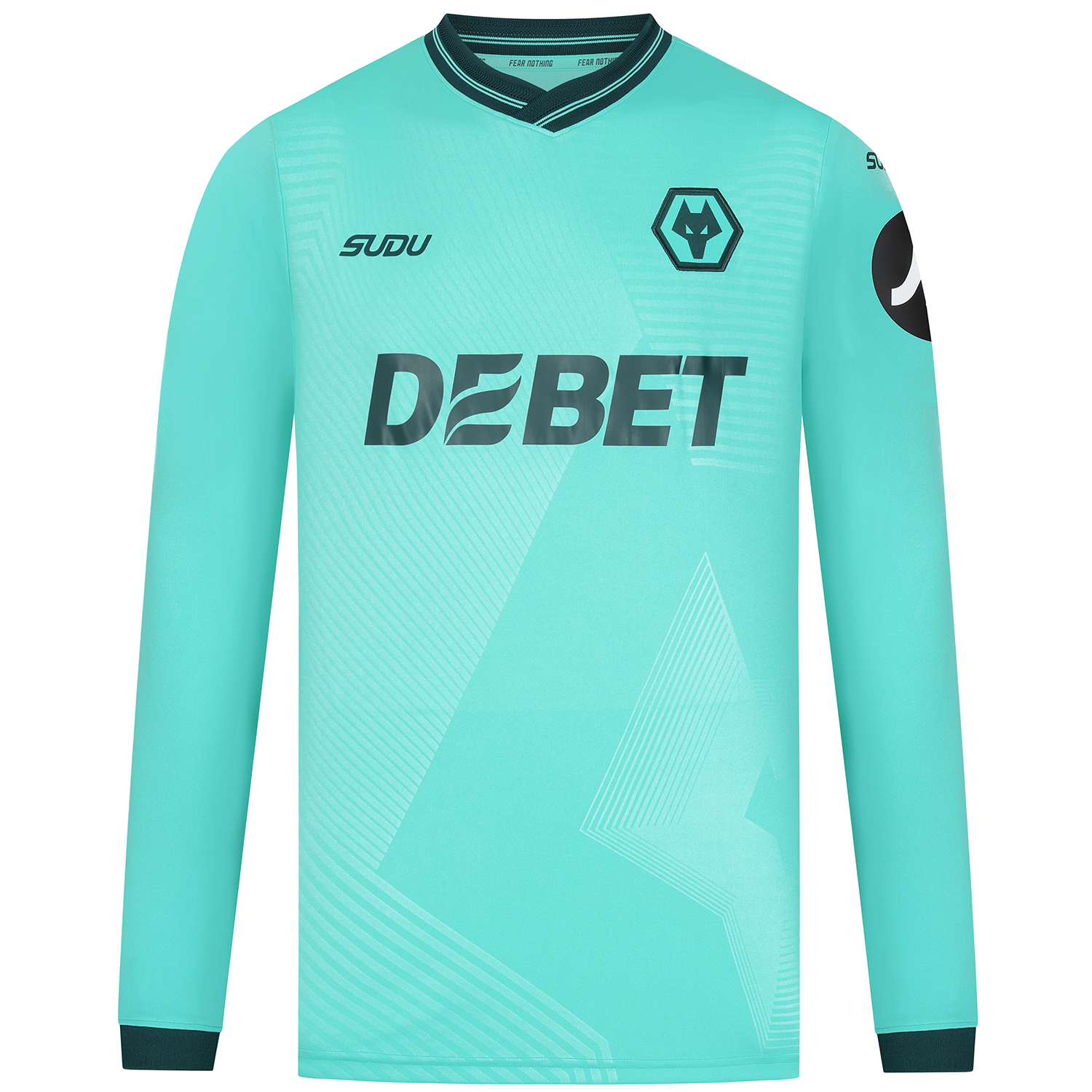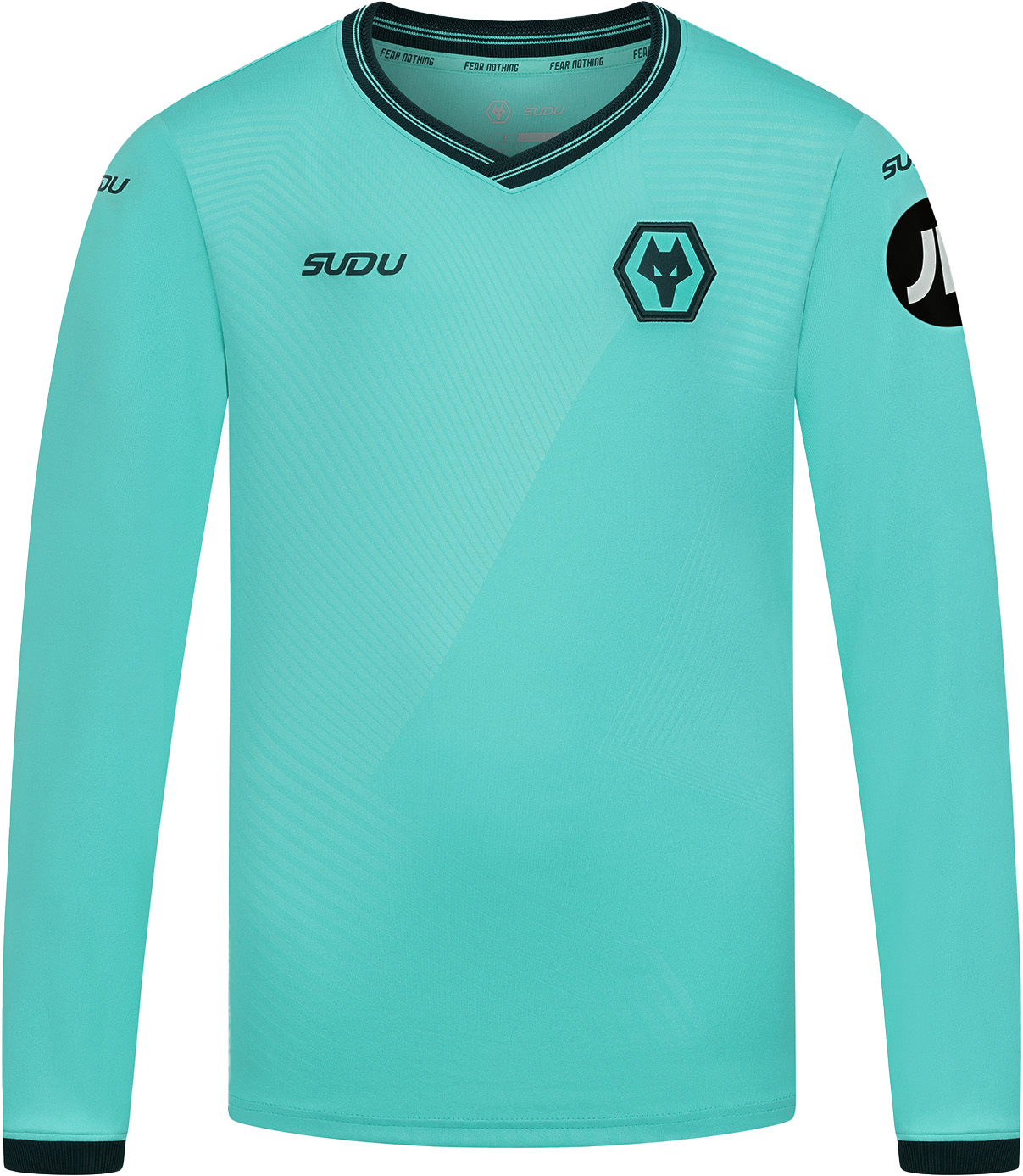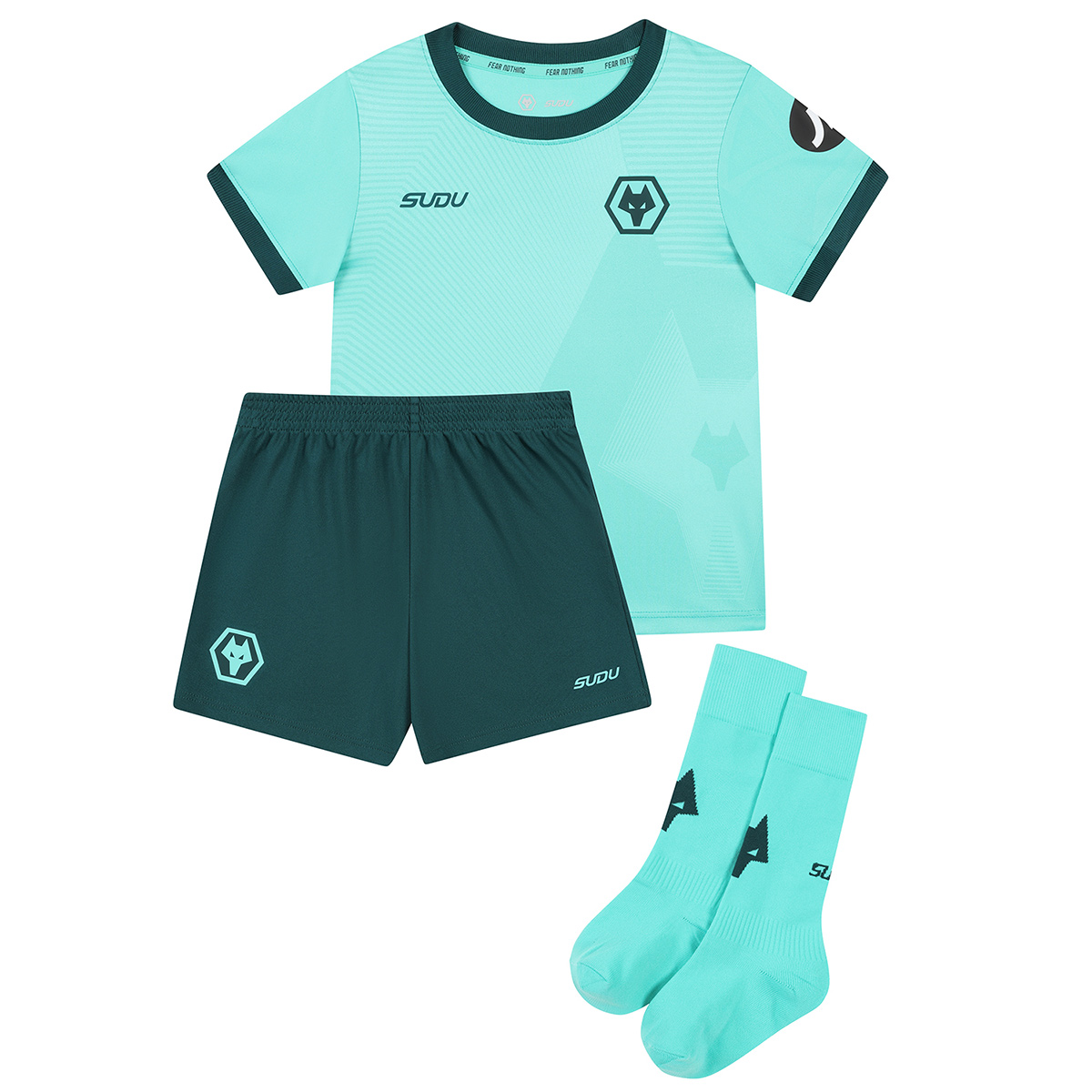Bringing an excellent understanding of the inner workings of the football and business side of the club to his new role, Hobbs has already begun to establish strong working relationships between Lopetegui, his team and the existing staff at Wolves as the rebuild starts to take shape.
But his main task – at least until the end of the January transfer window – will be to provide the players Lopetegui needs to rejuvenate the squad in order to turn the first-team’s fortunes around.
“I view it as being the middle of a wheel and the spokes coming off it are the various departments,” he explains.
“I need to pull the departments together, academy, first-team, women, medical performance, coaching, recruitment – challenge them, because we can get better in lots of ways. Jeff’s big challenge for me is to make sure we’re elite in every department.
“The last two weeks have been about meeting with Julen regarding the club as a whole, speaking to Oscar [Caro] about medical and sports performance aspects and I have a group chat with Ben [Wrigglesworth], head of scouting, Elliot [Sutcliffe], scouting coordinator, Fran [Garagaza] and Dan [Lopetegui], for information and data on players we are discussing. As you can imagine this is very busy at the moment!
“Whilst we are reviewing lots of areas, first and foremost, it’s about players. My job in the immediate future is to make sure we get the right players. We’ve got a world-renowned manager, with a support team to match, and we’ve got a lot of top players, who are not playing to their potential at the moment.
“But we need to add in January because we are short in some areas. That’s what it has to be all focused on at the moment.”
Although Hobbs admits 90 per cent of his job from now until the end of the January transfer window will be based around bringing players into the club, a key part of his role will be focused on making sure those who arrive at Molineux are the right type of person as well as the right fit for Lopetegui on the pitch.
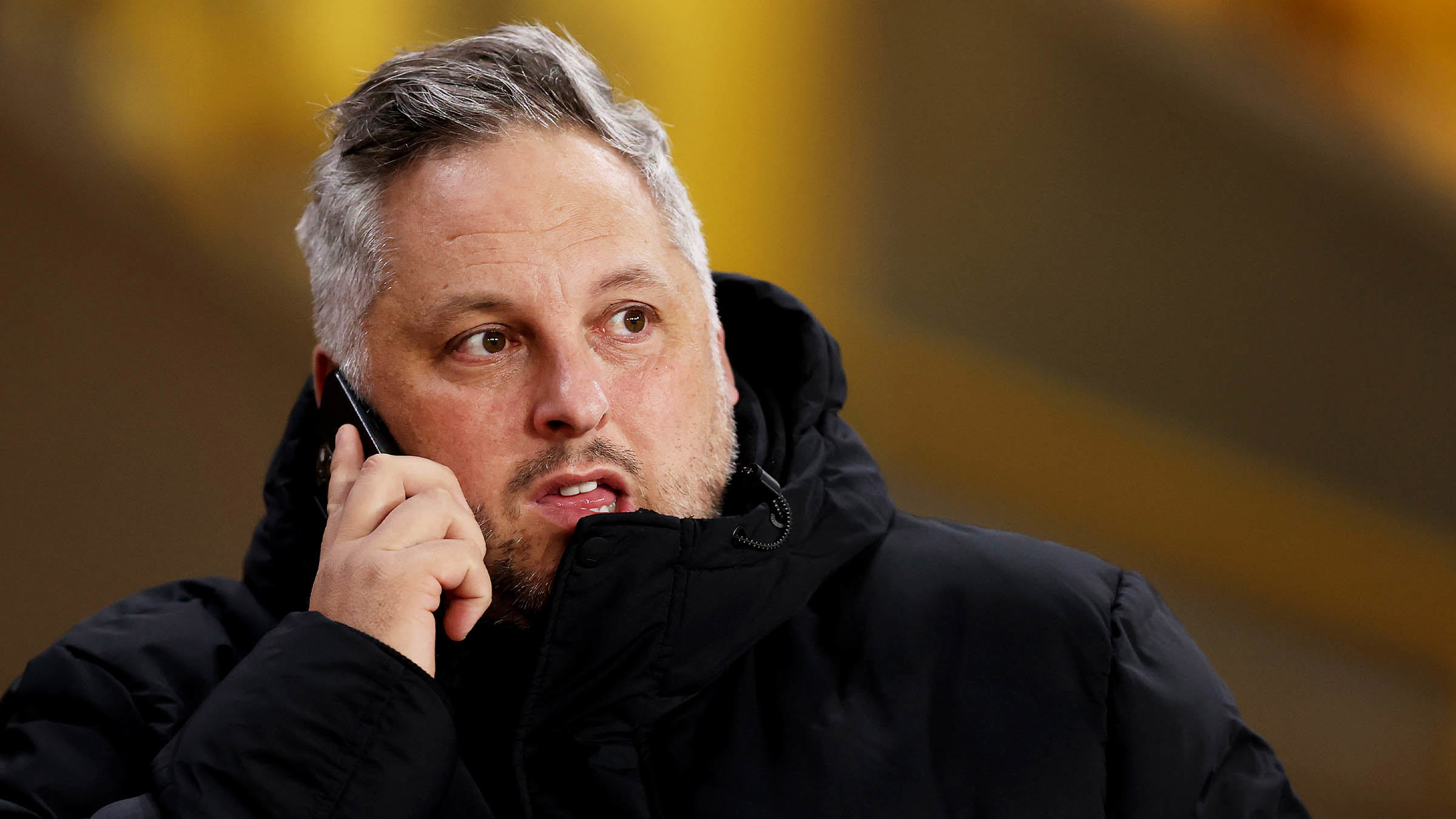
Under previous sporting director Kevin Thelwell, Wolves were known for a holistic approach to their recruitment. Due diligence was paid to ensuring not only good footballers were being signed to the club but good people, and that strategy is set to continue under the new regime.
“At first-team level, 50 per cent of the recruitment work is on technical and 50 per cent is on the person,” Hobbs said. “Most people can watch a Premier League game and see a good player, but where we have to make sure our standards never slip, is our rule to avoid players who negatively impact the group.
“For Nathan [Collins] and Bouba [Traore] we had over 35 personal references. It is important that these are from a variety of sources and different stages in their career to date, including times they been out of form or out of a team.
“Julen also won’t sign a player he hasn’t spoken to, which is something we have wanted for while. He wants to meet every player before we sign them, either face-to-face or a call on Zoom because he wants to have a feel for them as people.
“We are working with Fran, who will be traveling around Europe for us, and Dan whose insight has been invaluable, but we all communicate regularly, and the relationships have been easy to forge so far.
“They came in with a list of players they believe can help us and Ben and the team have been working on ours, but what has helped build the relationships were that we had a lot of the same names, which quickly showed everyone was on the same page.
“In the position we are, players who normally wouldn’t come are engaging and agents are engaging with us, which is a lot to do with the head coach, but we need to make sure we keep an eye on the end goal of prolonged success. However, steering us to safety as soon as possible this season is the first part of our plan.”
Increasing the communication and building relationships between existing staff and the new team coming in with Lopetegui has been another area of focus for Hobbs.
The sporting director has been in constant contact with the Spaniard and his staff throughout the past few weeks to make their transition into the club as smooth as possible.
He has looked to establish positive relationships throughout the backroom staff, while working together to share player information and create a combined list of transfer targets, and Hobbs believes what has already been built over such a short space of time, together with the confidence the new head coach and his staff have radiated across Compton and Molineux, is already proving its worth.
“We talk a lot. Julen’s a very good communicator and he exudes confidence. He and his team have worked at the highest level, they know what success looks like and they know what they’ve got to do to achieve what they want.
“He’s come in knowing what he needs to do, and it can’t help but make you feel confident and makes you buy into him. My job now is to make sure he has all the tools he needs to execute our plans.
“He’s also given the whole staff a lift in confidence and once he gets to work with the whole group of players, you will see the belief return to them too.
“His personality is infectious, and everything’s been very positive. He fits perfectly into what we’re trying to do. He loves the club’s mottos, he loves the values, and it’s how he works.
“We have some short-term objectives to complete first, but the future going forward should be a really exciting time for everyone.”
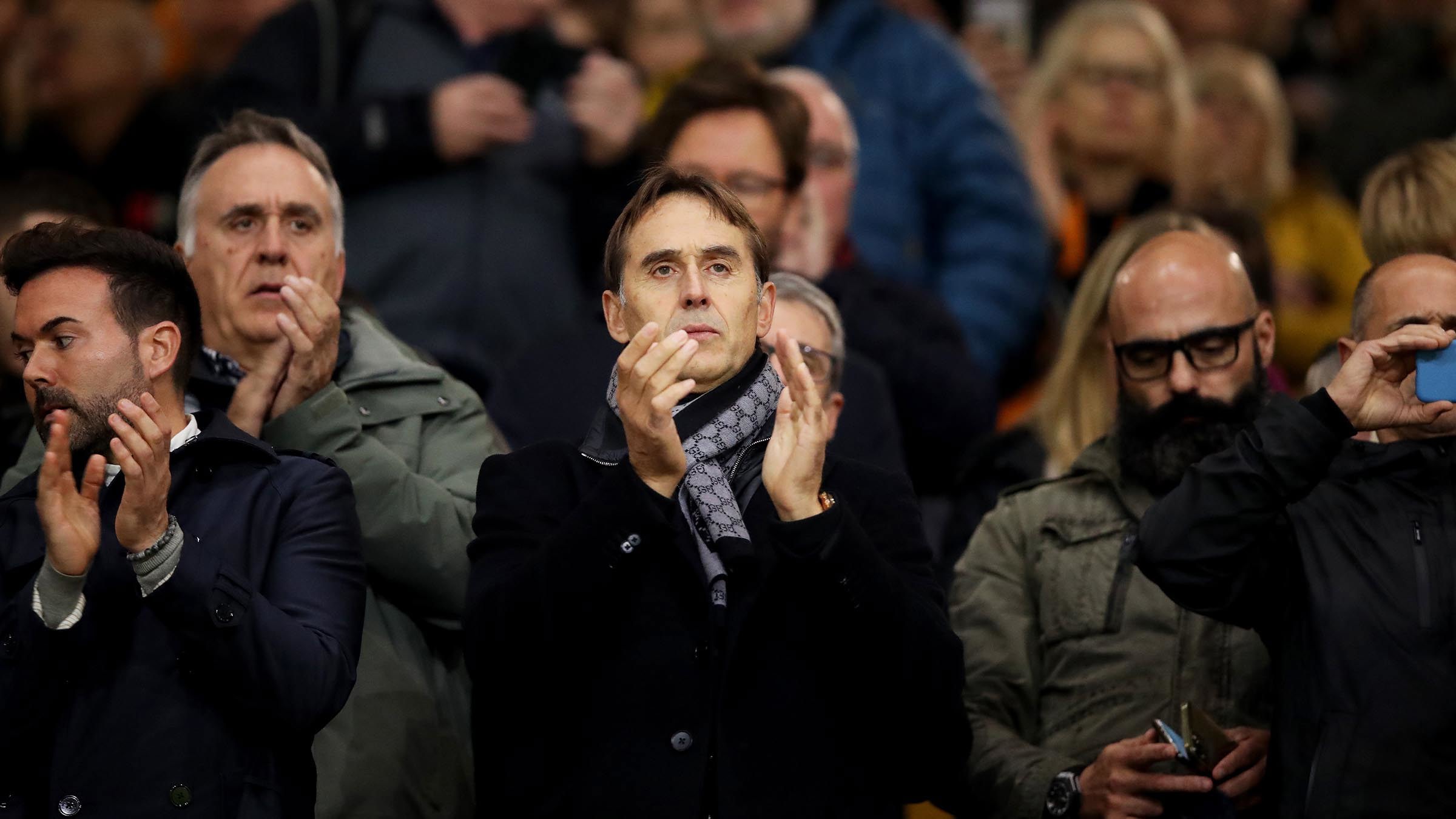
It’s been an impressive rise at Wolves for Hobbs, who first stepped into the club as an academy scout back in the summer of 2015. A self-proclaimed “mediocre” footballer, he turned his back on a career in non-league, having played in the fifth, sixth and seventh tiers during his younger years, and began a life discovering the best young talent in the UK and across Europe.
Recruitment has always been a big role in Hobbs’ life, and it could be said that he was born into it.
His father has been part of Chelsea’s recruitment department for the past 15 years, and while Hobbs junior was learning the ropes as a coach in his mid-20s, he was also taking tips from his dad as the pair travelled around the country, searching for the best young players to bring to Stamford Bridge.
“I was going to games with my dad, seeing how they operated, seeing what they were looking for, and that era of Chelsea was when they were starting to come to prominence. That’s when I realised I preferred it to coaching.
“My journey at Wolves started before Fosun first came in as a part-time scout covering the south-west of England.
“On a Sunday morning, I’d be on the side of an under-14s pitch trying to gather information on any interesting players for our academy, without squads lists to help.
“Without details, you have to listen as coaches or parents shout names and identify which child was with which parent so you could try and establish if this 14-year-old centre-back will continue to grow and be the height needed to play in that position in six years’ time.
“Scouts across the country are still doing the same for academies week in, week out. You are watching 14-year-olds and trying to see into a crystal ball as to what they could become.
“But that’s a vital part of any recruitment team at any club and every club has them in the Premier League. That grounding has given me an understanding of what the guys go through, but also made me think outside the box a little bit.
“Then it was to head of academy scouting for Europe, then to merging talent lead, and then head of academy recruitment, into chief scout, then chief scout/head of recruitment. I’ve seen what people have to do at each part, and I’ve managed budgets, managed people, our staff retention is high, and I’ve created a strong department.
“My journey was a mediocre player, to a good coach, but a better scout. The time spent with my dad on the side of pitches, in stadiums, was the best education I could have had.”
Hobbs’ time spent in the academy has coincided with its remarkable growth, and it’s a period he looks back on with great fondness.
He counts helping to discover players such as Maximilian Kilman and Hugo Bueno – who were both brought into Wolves for fees which are miniscule for a Premier League football club – as well as Christian Marques and Nigel Lonwijk, to name a few, as some of his biggest success stories in recent years, but the creation of a top-class recruitment department at academy and first-team level are what Hobbs prides himself on.
“The players who come in are only an outcome, and unless you build everything which sits behind it, the outcome never happens.
“For me, it’s the relationships we’ve created within the club which have enabled them to go where they’ve gone from to where they are now, both in the academy and the first-team.
“At a lot of Premier League clubs, there’s a distance between scouting, recruitment and coaching, whereas we’ve built extremely strong relationships at our club with the coaching staff, the academy and now the first-team.
“This was something that Scott [Sellars] created and insisted on four years ago and Jon [Hunter-Barrett] has then taken even further in his relationship with Harry [Hooman, head of academy recruitment].
“Without those relationships, Hugo probably doesn’t progress through for example, because if the coaches don’t buy into it, come up with a plan for him and don’t want to put the hard work in as he has no chance. However, with the trust Scott and Jon have put into the academy recruitment team and the age group coaches, this allows for one of the best environments at a Premier League club for developing talent.
“This is why a Hugo or a Max is testament to so many people, not just the scout or recruiting department. The club should be proud of what they have created here.”
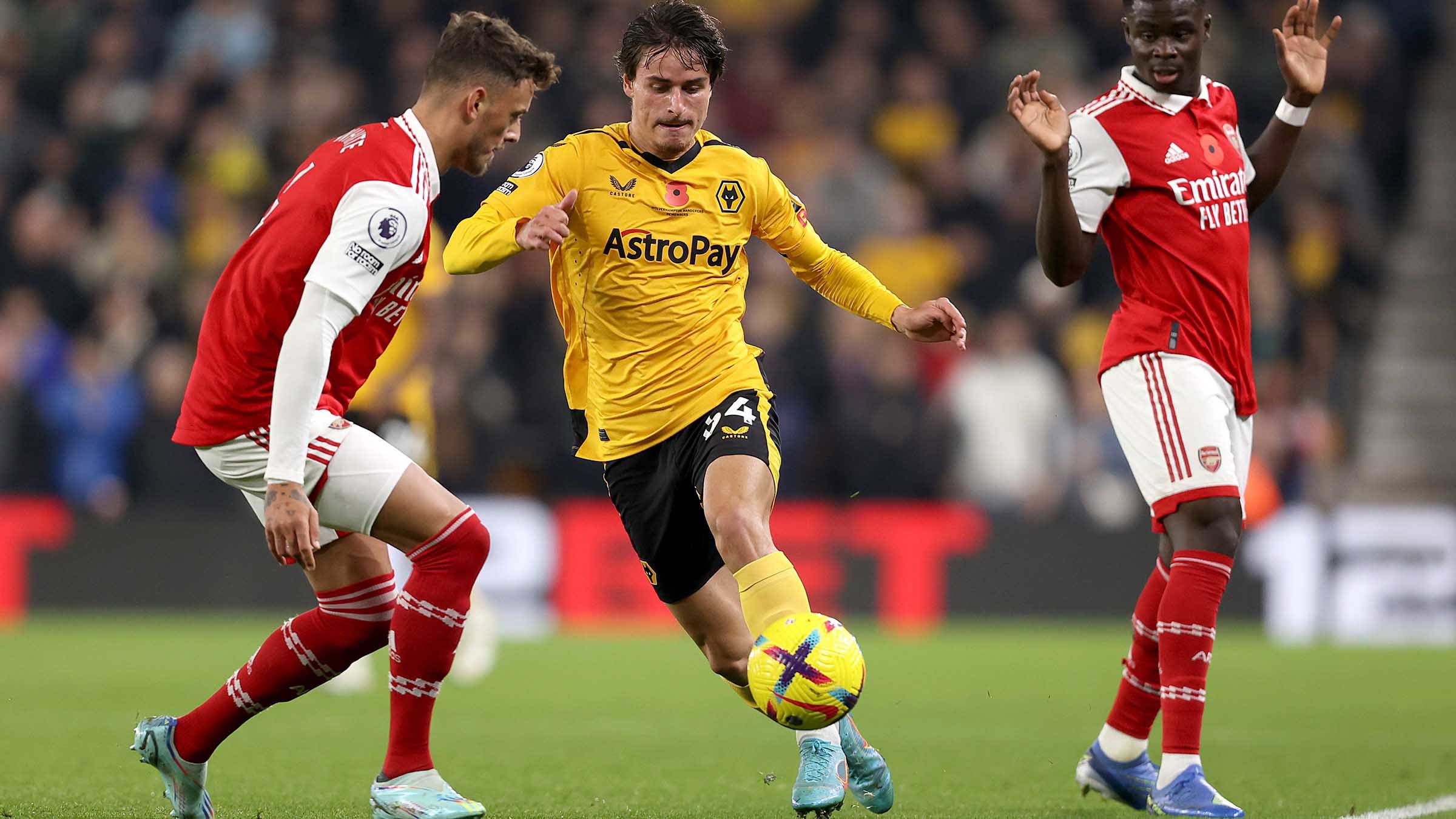
Under the leadership of former technical director Sellars, who Hobbs credits for turning the academy into one which now produces elite players ready to step straight into the Premier League, staff were allowed to flourish and be progressive in their working approach.
That progression has benefitted Wolves enormously, with some of the most talented academy and first-team prospects now being given an opportunity to develop away from Molineux at a higher level than has ever been seen before.
“When you talk about what I’m proud of, I remember when I first came into the head of academy recruitment role, we were struggling to even loan players into non-league teams.
“Now we have Gilo [Ryan Giles], Dion [Sanderson], Luke [Cundle] and Theo [Corbeanu] performing every week in the Championship.
“Nigel is playing week in, week out for the team at the top of the table in League One as a 20-year-old centre-back – having featured in 22 games in the Eredivisie last year, and Christian is becoming a very important player and leader at Forest Green Rovers.
“But what I’m most proud of is how the whole academy has developed. We’re catered to developing elite players now, and when I first came in, we weren’t.
“Everything Scott put in place, in terms of strategy, people and the way he managed them – not micromanaging but trusting them and empowering them – has enabled them to go away and create the environment that we have.
“The club have a lot to thank Scott for, and with people like Jon, James [Collins], Steve [Davis], Laura [Nicholls] and many others who have supported him for so long, he leaves knowing that he has put everything in place for continued success.”
Progressing through the system behind the scenes at Wolves during the past seven years has given Hobbs the knowledge of how the club operates at every level on both the football and business sides.
But this familiarity has also allowed him to evaluate the areas which have room for improvement, with the new sporting director keen to not rest on his laurels as he supports Lopetegui in creating an environment and first-team squad which can hit the ground running.
“You’ve always got to be looking to be better. There are areas we can improve and be even better, and that’s not always to do with people, it can be about environments. For example, the gym is something Oscar is talking about modernising and increasing its scope, and there’s also support services.
“Compton doesn’t have a huge amount of empty building space for academy or first-team, so that’s something that needs addressing over the longer term to help create that world class environment, but none of that happens overnight.
“There will be some changes that are happening quickly with support staff to make sure Julen is happy with the team around him. It’s vitally important that he fully trusts the staff around the first-team to allow him to have an impact from day one.”
But no matter what needs to be done to improve Wolves in the long-term, Hobbs understands the most important part of his role will be focused on the work that immediately needs to be done.
“The first part is about enabling us to win games from Gillingham onwards, and then we get the right players as early in January as possible, making sure when they come in, they are ready to go, and providing Julen with all the support underneath him to help him achieve that.
“Once we’ve done that, then we start looking at what elite looks like as a final outcome and work our way back from there to create a medium and long-term strategy to help us achieve our end goals.”










